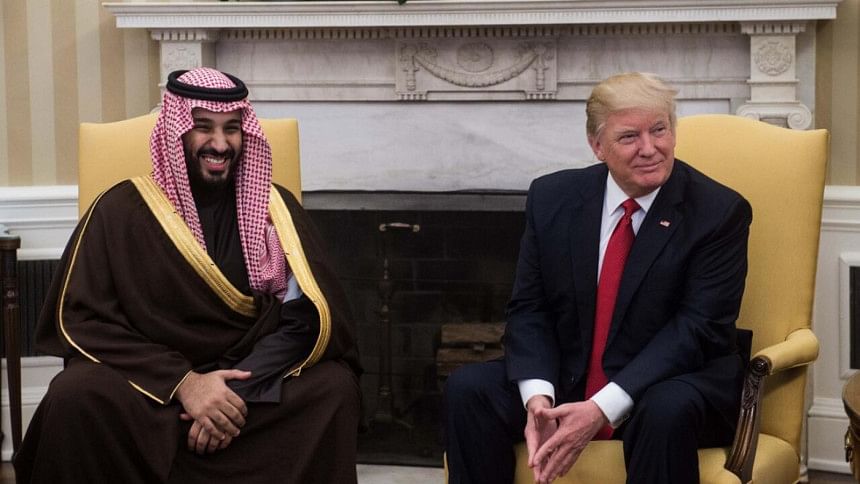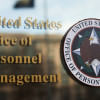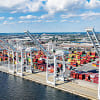How Trump’s resurgence could affect the global order

As Donald Trump prepares to assume office as the 47th president of the United States, the world braces for a seismic shift in global politics. His second term, bolstered by a stronger electoral mandate and full Republican control of both chambers of Congress and the Supreme Court, is poised to challenge the fragile framework of the so-called "rules-based international order." This order, long championed by Western democracies, particularly the US, may be heading toward an uncertain future under Trump's leadership. His unpredictable and transactional approach to both domestic and foreign policy suggests that the US' global role could be radically redefined, with profound consequences for geopolitics.
A mandate for disruption
First, Trump's return to power is unlike his first term. He steps into the Oval Office now with fewer constraints. Republican dominance in Congress and a conservative Supreme Court majority effectively give him an open field to enact his agenda. However, this concentration of power doesn't guarantee smooth sailing. Trump's presidency is likely to encounter internal divisions, public backlash, and global resistance.
On the other hand, Trump's hardline rhetoric and actions signal that he will govern with an iron fist. His renewed pledge to implement aggressive immigration policies foreshadows a crackdown on undocumented immigrants and asylum seekers. His appointed border chief has already hinted at mass deportations, even involving naturalised citizens. The suggested approaches will undoubtedly devastate countless families but may also backfire due to labour shortages in key industries like agriculture and construction, exacerbating inflationary pressures in an already fragile economy.
The high-tech sector also stands at a crossroads. Trump's protectionist trade policies, including a proposed 25 percent levy on Canadian and Mexican imports and punitive measures against China, threaten to ignite trade wars. While such policies may appeal to nationalist sentiments, they risk crippling supply chains and driving up consumer prices. Even Trump's behind-the-scenes adviser, Elon Musk, has warned that the US' economic future depends on attracting skilled labour—a policy area seemingly at odds with Trump's restrictive immigration stance.
The UN and the decline of multilateralism
Perhaps the most telling indicator of Trump's global stance will be his treatment of international institutions. His disdain for multilateral organisations like the United Nations is well-documented. During his first term, Trump withdrew from the Paris Agreement and the World Health Organization, signalling his disregard for collective global action.
\This time, Trump may go further. If the UN condemns US or Israeli actions, Trump could threaten to slash funding or even withdraw from the organisation altogether. His administration is likely to disregard international law when it clashes with US interests. Ironically, Trump's blatant dismissal of global norms might expose the hypocrisy of a system that enforces international law selectively—harshly penalising adversaries while excusing allies.
Foreign policy: Isolationism or neo-imperialism?
In foreign policy, Trump's intentions are murkier but no less concerning. His approach to the ongoing Russia-Ukraine war will be a litmus test for his broader global strategy. During his first term, Trump dismissed the conflict as irrelevant to US interests. Now, he may attempt to position himself as a peacemaker by engaging Russian President Vladimir Putin in back-channel diplomacy. However, such a move could fracture NATO and undermine the Atlantic alliance that has underpinned Western security since World War II.
Biden's strategy of militarily containing Russia has left Ukraine devastated and Europe on edge. Trump's potential pivot toward conciliation with Russia could force European allies to reconsider their security postures. Yet, this rapprochement might also embolden Moscow, accelerating the erosion of the post-Cold War order. The US could face a painful choice: accept strategic setbacks or escalate forcefully to reassert dominance.
In the Middle East, Trump's policies are expected to be even more aggressive than during his first term. His unwavering support for Israel is likely to deepen, potentially encouraging Prime Minister Benjamin Netanyahu to pursue further annexation of the occupied West Bank and continue military aggression in Gaza. Trump's disregard for Palestinian rights, coupled with his administration's readiness to recognise illegal settlements, could permanently extinguish hopes for a two-state solution.
The possibility of Trump launching strikes on Iran's nuclear facilities or pushing for regime change in Tehran raises the spectre of a wider regional conflict. His "maximum pressure" campaign, marked by the assassination of Iranian General Qasem Soleimani during the first Trump administration, failed to curb Iran's influence. Still, Trump appears undeterred and may double down on the confrontational strategy. Such actions could inflame anti-American sentiment, destabilise the Gulf region and strain relationships with traditional allies like Saudi Arabia and the United Arab Emirates.
Trump's relationship with Gulf monarchies, particularly Saudi Arabia and the UAE, will likely be in the spotlight. His first foreign trip as President in his first term was to Riyadh, underscoring the strategic importance he places on these alliances. But gulf nations have been diversifying their alliances, deepening ties with China and even engaging diplomatically with Iran. Saudi Arabia's growing relationship with Beijing—joining BRICS and partnering in the Shanghai Cooperation Organization—poses a potential conflict with Trump's "America First" agenda. Will Trump pressure Gulf states to sever ties with China, risking economic fallout? Or will he tolerate these relationships to maintain regional stability?
The Abraham Accords, which normalised relations between Israel and several Arab states, could also expand under Trump. Saudi Arabia remains hesitant to formally recognise Israel without progress on Palestinian statehood. Israel's intransigence makes such normalisation unlikely, potentially stalling Trump's ambitions for deeper Israeli-Arab integration.
Trump's second term could take the US down one of two distinct paths. A return to isolationism would accelerate the decline of US global dominance, creating space for a multipolar world led by rising powers like China. Alternatively, Trump might adopt a neo-imperialist model, blending nationalist rhetoric with aggressive military and economic strategies. This approach could drag the US into more direct confrontations, resembling the Cold War but with more fragmented battle lines.
Unlike the 20th century, today's geopolitical tensions are not centered in Europe. While Trump may focus on Russia-Ukraine and Middle Eastern conflicts, South Asia might remain relatively untouched—at least during the early years of his presidency. This selective engagement could leave critical regions vulnerable to Chinese and Russian influence.
On the other hand, Trump's authoritarian tendencies, evident during his first term, are likely to intensify. His admiration for strongmen like Vladimir Putin, Narendra Modi, Xi Jinping and Kim Jong Un reveals his comfort with autocratic governance. Trump has openly mused about having dictatorial powers, raising concerns about democratic backsliding in the US.
Trump's second presidency is set to redefine global politics in unpredictable ways. His leadership could either bolster the US' waning dominance or accelerate its decline. Trump's actions could reshape alliances, provoke conflicts, and challenge the very foundations of the global system as we know it now. While a lot remains to be seen, one thing is for certain: the world is entering uncharted territory. And with Trump at the helm, the journey ahead will be anything but predictable.
Dr Rakib Al Hasan is a physician, author, activist and international award-winning youth leader of Bangladesh. He is the founder and executive director of the Centre for Partnership Initiative. He can be reached at [email protected].
Views expressed in this article are the author's own.
We welcome your contributions and analysis of global events, and responses to our articles. To submit articles to Geopolitical Insights, please send an email to [email protected].
Follow The Daily Star Opinion on Facebook for the latest opinions, commentaries and analyses by experts and professionals. To contribute your article or letter to The Daily Star Opinion, see our guidelines for submission.

 For all latest news, follow The Daily Star's Google News channel.
For all latest news, follow The Daily Star's Google News channel. 










Comments